Beshalach 5782 – Hishtadlus & Parnasah
Sponsored Anonymously l’zchus Refuah Shleimah. Shiur presented in 5778.
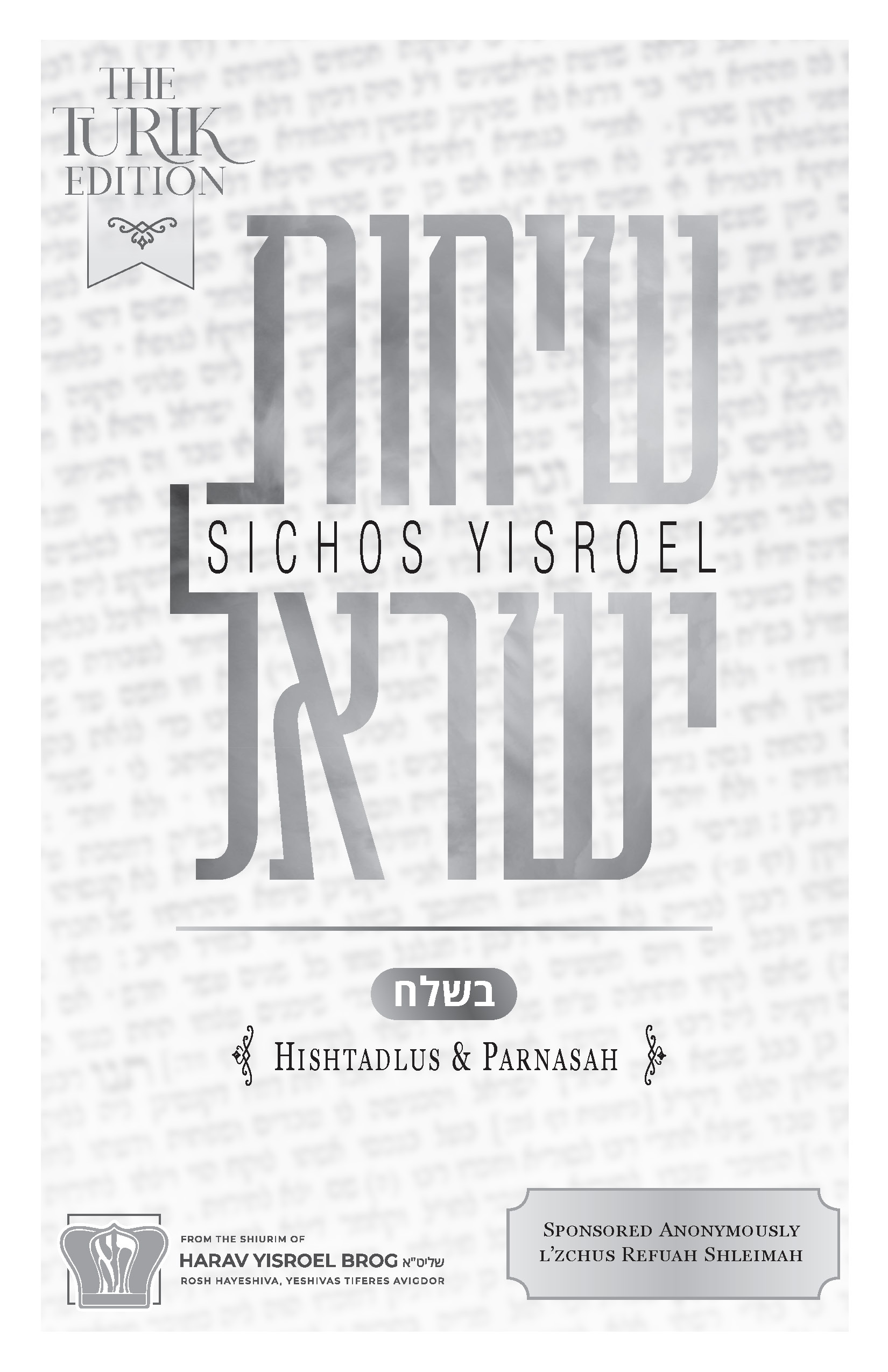
Sponsored Anonymously l’zchus Refuah Shleimah. Shiur presented in 5778.
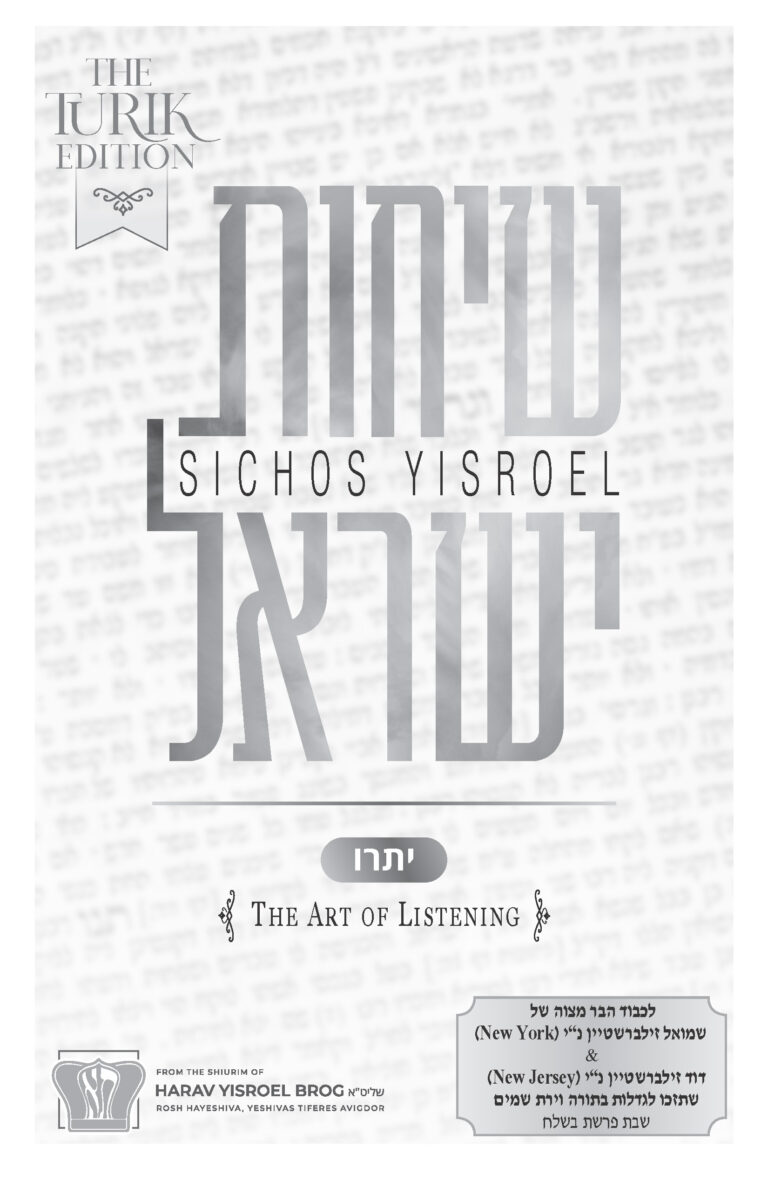
Today’s shiur is dedicated l’ilui nishmas isha hagedola, Sara Ita bas R’ Avraham Avigdor. Today was her yom hakvura. She was an outstanding person who lived day in and day out fulfilling her tafkid in life, working on her tafkid of being em b’yisroel.

Parshas Vayeshev is a unique parshah. It’s a parshah where you encounter strife. You encounter tzaros tzeruros in the life of Yaakov Avinu. You encounter tzaros tzeruros in the life of Yosef Hatzaddik. Each of them, Yaakov and Yosef, endured their own difficulties, and were not able to share it with each other as they were separated by distance and weren’t aware of each other’s experiences. This parshah, which deals with yesurim, teaches us something tremendous, because yesurim are part and parcel of our lives. It is something that is totally unavoidable.
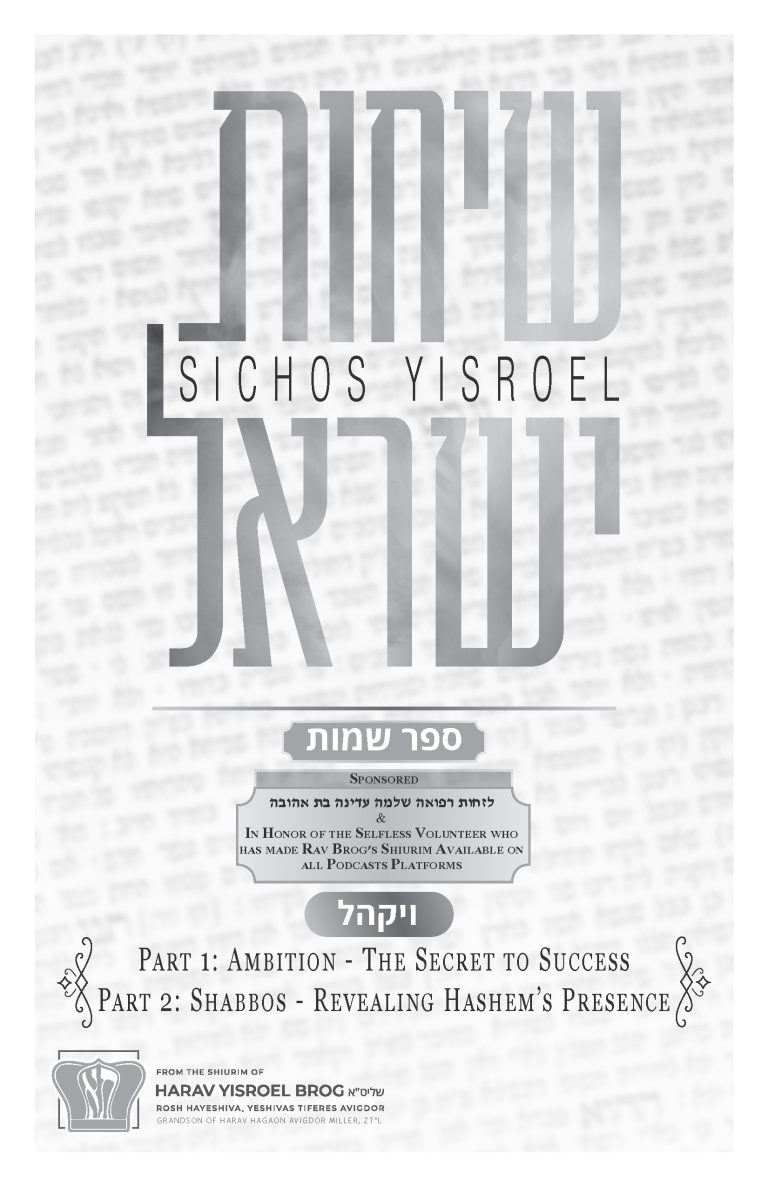
In this week’s parshah, it says that Moshe Rabbeinu told Klal Yisrael to come forward with their donations for the Mishkan. The passuk (Shemos 35:21) mentions two classes of people. There were people who were naso libo and there were also those people that were nedava rucho.
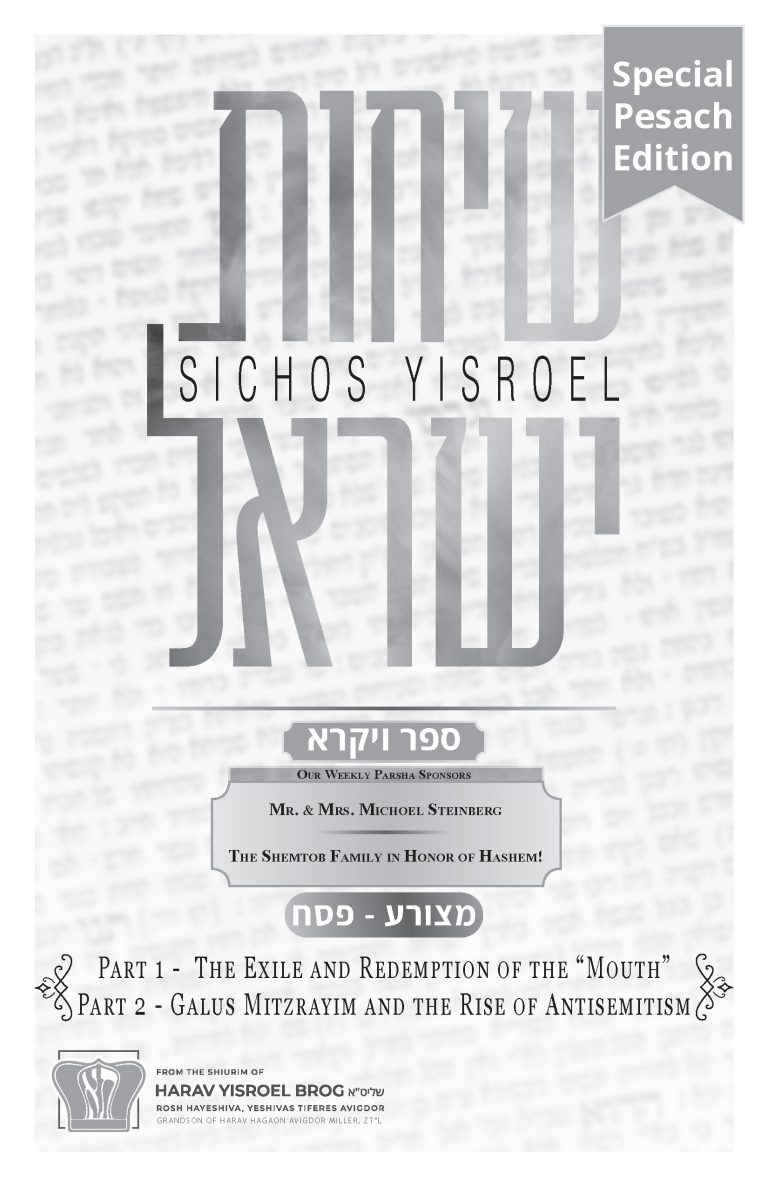
There is an interesting Ibn Ezra on the pasuk in our parsha: “This shall be the law for a metzora at the time of being purified, when he’s brought to the Kohen” (Vayikra 14:2). This is the law of the metzora and how he goes through his taharah ceremony…It’s a process. There’s a very interesting Ibn Ezra over here.
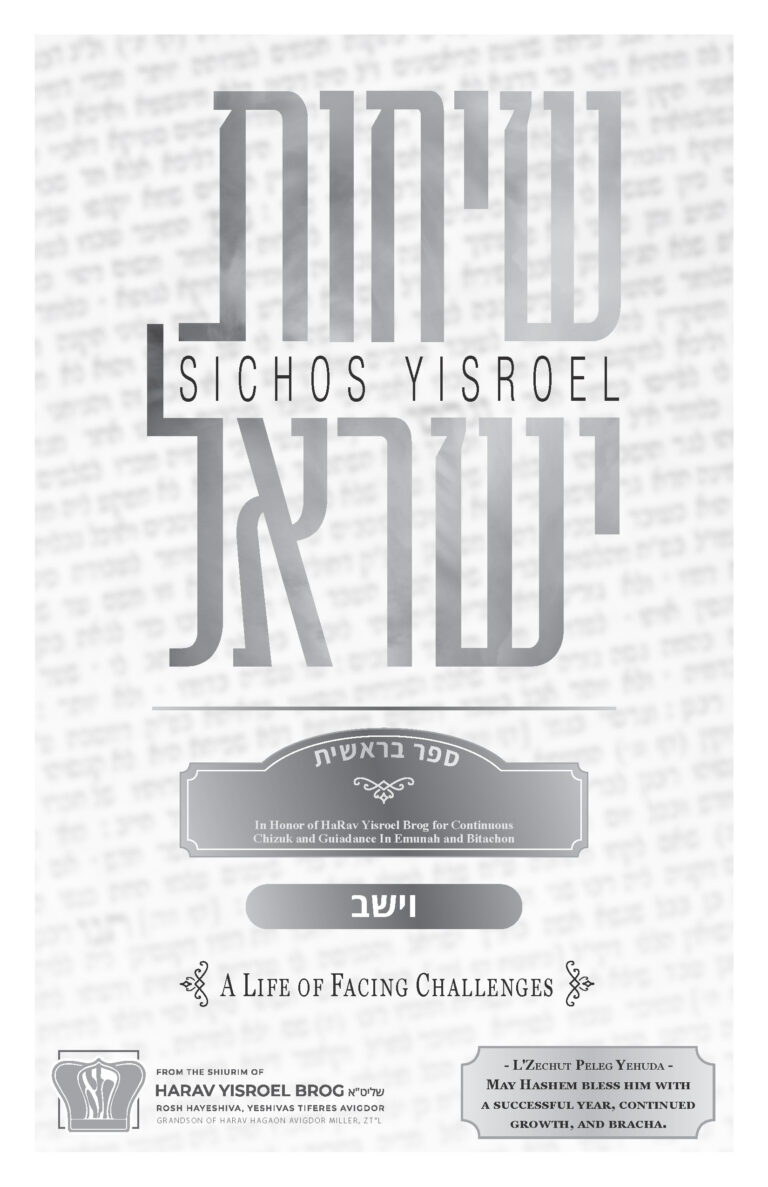
here’s a famous medrash that Rashi brings on the meaning of the word וַיֵּשֶׁב יַעֲקֹב, namely, that the term vayeishev insinuates that Yaakov Avinu wanted rest (Bereishis 37:2). He wanted מרגוע (restfulness). He had been in galus for many years, and was coming back to settle in Eretz Yisrael, the land of his forefathers. The medrash says…
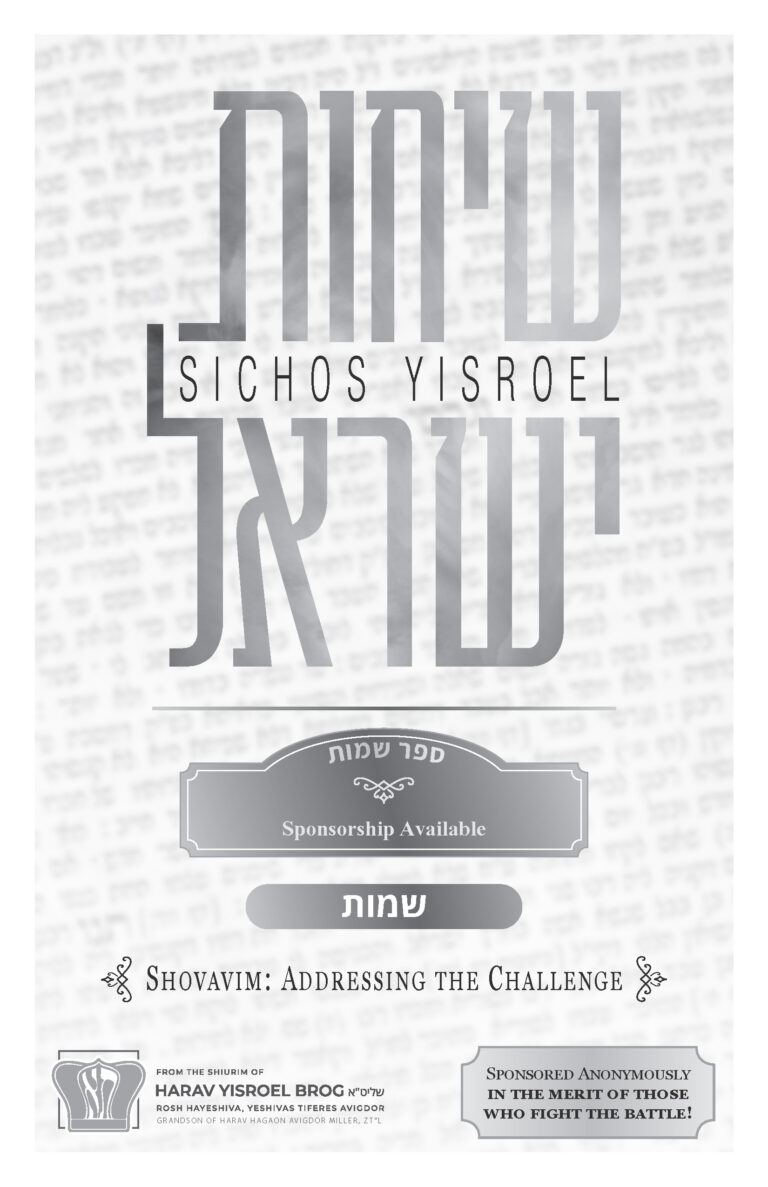
Yesterday, we spoke about the power of the yetzer hara, where he comes and he challenges each and every one of us, and presents us with new things. He has innovations. He offers us opportunities for new, imaginary horizons. And people succumb to his tricks. He gets into our minds, and messes with us, and we fall for it hook, line, and sinker.